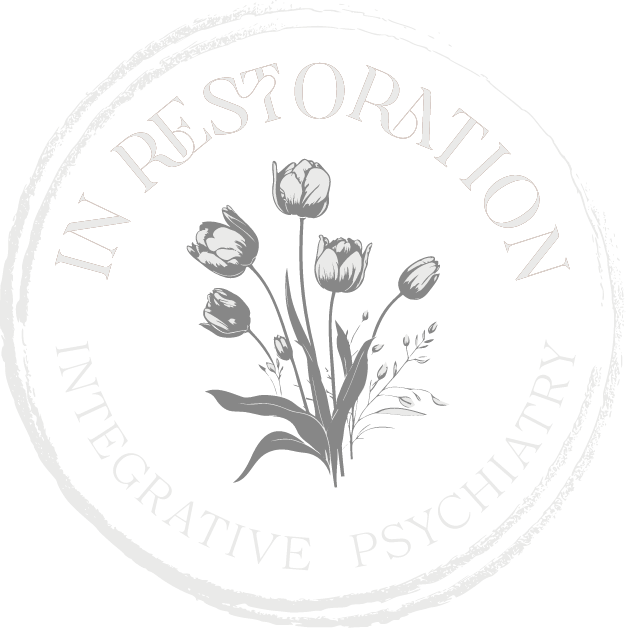Top Nutrients to Supercharge Focus, Mood & Learning This Year
Hi Parents,
The back-to-school checklist is long—supplies, schedules, and sports practices. But there’s one thing that gets left off far too often: your child’s brain health.
As a child and adolescent psychiatrist passionate about integrative care, I see how much attention, anxiety, and learning issues are connected to nutrient deficiencies and gut-brain imbalance. The good news? With the right support, kids can feel calmer, more focused, and more emotionally balanced in school.
In this first newsletter, I’m sharing key insights to help your child start the year strong by sharing The Top 5 Brain Boosting Nutrients for Back to School.
🧠 The Brain-Boosting Nutrients Every Kid Needs
Did you know that even healthy-looking kids can be low in key nutrients that fuel the brain? This is especially important for children who struggle with ADHD, anxiety, or learning disabilities. Research consistently shows that many of these kids are missing vital nutrients that support brain function and emotional regulation.
Here are the top 5 brain-boosting nutrients:
- Vitamin D – Helps regulate mood, immune function, and inflammation. Many kids are low, especially in winter months or with limited sun exposure.
- Omega-3s (DHA/EPA) – Crucial for attention, memory, and cognitive flexibility. Found in fatty fish or high-quality supplements.
- Magnesium – Supports calming neurotransmitters, better sleep, and resilience to stress. Often depleted in kids under chronic stress or with anxiety.
- Zinc – Affects mood, memory, and immune health. Low levels are linked to irritability, difficulty concentrating, and picky eating.
- Iron (Ferritin) – Essential for oxygen transport to the brain and key for attention and motivation. Deficiencies are especially common in girls and kids with ADHD.
Here is how to boost these nutrients through nutrition & lifestyle
⚡Vitamin D
Get through sunshine
Duration: For most people, 10 to 30 minutes of sun exposure daily or a few times per week to a large area of skin (like arms, legs, back, face) without sunscreen is often cited as sufficient.
Skin Exposure: Exposing 50-80% of the skin (e.g., in shorts and a t-shirt or swimwear) will allow for more efficient Vitamin D production compared to just hands and face.
Without Sunscreen: Sunscreen effectively blocks UVB rays, thus preventing Vitamin D synthesis. For the purpose of Vitamin D production, a short period without sunscreen is necessary.
Skin Type:
- Lighter skin tones (Fitzpatrick skin types I-II) produce Vitamin D much faster and require less time in the sun (e.g., 5-10 minutes).
- Darker skin tones (Fitzpatrick skin types V-VI) have more melanin, which acts as a natural sunscreen, and therefore require significantly longer exposure times (e.g., 25-30 minutes or more) to produce the same amount of Vitamin D.
Fatty Fish (in small amounts): Salmon, mackerel, and tuna can be introduced in age-appropriate ways (e.g., flaked salmon in pasta or on crackers).
Egg Yolks: A good natural source, easily incorporated into scrambled eggs or omelets.
⚡Omega-3s (DHA/EPA)
- Salmon: Baked or pan-seared salmon can be flaky and mild. Try salmon patties or mix cooked salmon into gluten-free pasta or on gluten-free crackers.
- Tuna: Canned light tuna (in water) can be used in tuna salad (made with dairy-free mayo), or mixed into gluten-free pasta dishes.
- Sardines: While a tougher sell for some, mild sardines packed in water or olive oil can be mashed and hidden in other foods or put on gluten-free crackers.
- Walnuts & Chia Seeds: While they contain ALA (which converts to DHA/EPA in small amounts), they are good for overall healthy fats. Sprinkle ground chia seeds into smoothies or oatmeal, or offer walnuts as a snack.
⚡Magnesium
- Dark Chocolate/Cocoa Powder: A little bit of dark chocolate or unsweetened cocoa powder in smoothies can be a treat (ensure dairy-free dark chocolate if applicable).
- Avocado: Sliced, mashed into guacamole, or added to smoothies.
- Nuts & Seeds: Almonds, cashews, pumpkin seeds, and sunflower seeds (ensure age-appropriate for choking hazards, e.g., nut butters).
- Bananas: An easy, popular snack.
- Leafy Greens: Spinach can be easily blended into smoothies (it often goes unnoticed!) or mixed into pasta sauce.
- Legumes: Black beans, lentils, and chickpeas can be added to soups, stews, or made into dips like hummus.
- Gluten-Free Whole Grains: Oats (certified gluten-free), brown rice, quinoa.
⚡Zinc
- Beef & Poultry: Ground beef in tacos or meatballs, chicken nuggets (homemade for healthier versions), or roasted chicken.
- Beans: Chickpeas, lentils, black beans in chili or burritos.
- Nuts & Seeds: Cashews, pumpkin seeds, and hemp seeds (sprinkle on yogurt or oatmeal).
- Eggs: Scrambled, hard-boiled, or in omelets.
⚡Iron (Ferritin)
- Red Meat: Lean beef (meatballs, chili, tacos).
- Poultry: Chicken and turkey (dark meat is higher in iron).
- Beans & Lentils: Lentil soup, black bean burgers, or beans in quesadillas.
- Dark Leafy Greens: Spinach (again, can be hidden in smoothies or sauces), kale (baked into kale chips).
- Dried Fruit: Raisins, prunes (in moderation due to sugar content).
- Eggs: A versatile source of iron.
Pro-Tip for Parents: Pair iron-rich foods with Vitamin C sources (like oranges, bell peppers, strawberries) to significantly enhance iron absorption!
At Cinco Ranch Psychiatry, we believe in getting to the root of the problem. That’s why we run labs on every child—because missing these deficiencies can lead to unnecessary treatments, delayed progress, and prolonged disability from common childhood diagnoses. Nutrition is foundational, and a big part of our integrative approach is focused on identifying and correcting these key deficiencies.
Simple blood work can identify these gaps. I believe in testing, not guessing. You can purchase these nutrients for your child, but it is best practice to check actual nutrient levels first, where every dose is tailored to your child’s unique results. Targeted nutrition and personalized supplementation can dramatically improve how your child feels, learns, and functions at school and at home.
To schedule an appointment, give our clinic a call at 713-332-4388.
To purchase these 5 Brain Boosting nutrients at a 15% discount, click here.
How are our supplements different? Click here to find out.
Here’s to Living Well!
Nicole Stahl M.D.
Disclaimer:
The information provided in this newsletter is for educational and informational purposes only and is not a substitute for professional medical advice, diagnosis, or treatment.
Do not start any new supplements, medications, or treatments without first consulting your healthcare provider. It is always best to be evaluated by a qualified medical professional, including lab testing when appropriate, to guide personalized treatment decisions.
Every individual is different, and what works for one person may not be safe or effective for another.

